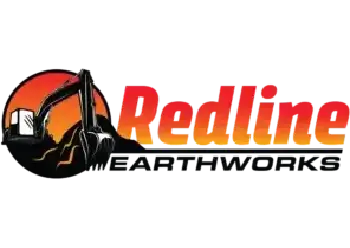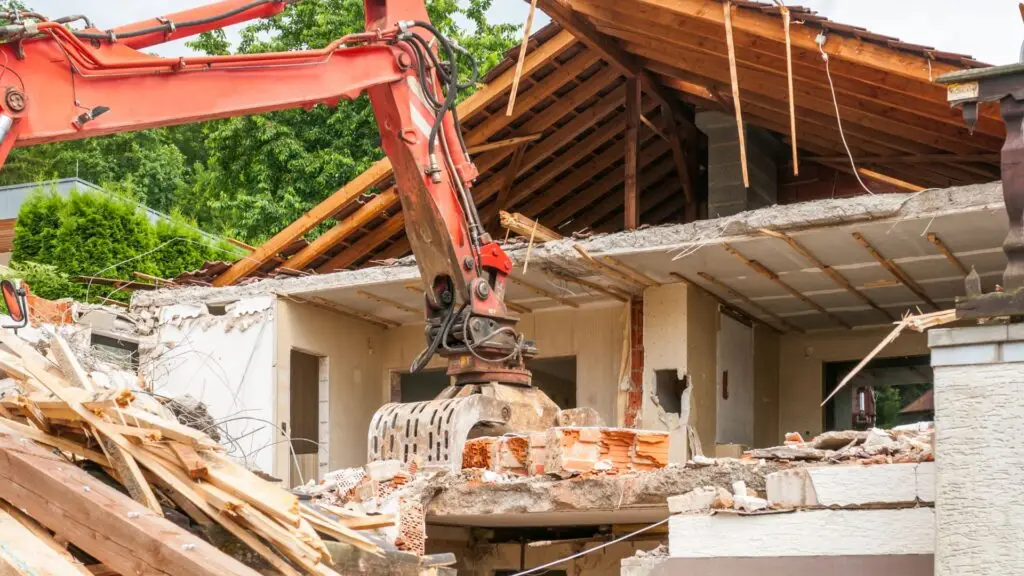Welcome to your go-to guide for understanding the cost of demolition services in New Zealand. Whether you’re planning to knock down an old house, remove a garage, or clear space for a new build, knowing what you might pay is a key first step. Demolition costs in NZ can vary widely based on factors like size, location, materials, and site conditions. This guide breaks it all down, giving you real price ranges, what affects those numbers, and tips to help you save. If you’re budgeting for your next project or just curious about what to expect, you’re in the right place.
The cost for demolition services in New Zealand typically ranges from $15,000 to $40,000 for a standard house. Prices depend on factors like building size, materials, location, site access, and whether hazardous materials like asbestos are present. Small jobs like garage or shed removal may cost $5,000–$10,000, while large commercial demolitions can exceed $50,000. Always request a detailed quote to get an accurate estimate.
Table of Contents
Average Demolition Costs In New Zealand
If you’re planning to demolish a building in New Zealand, understanding the average costs upfront helps you set a realistic budget. Prices can vary based on location, building type, and job complexity, but having a ballpark range gives you a solid starting point. This section covers average costs for different types of demolition, including residential, commercial, partial, and full demolitions.
House Demolition: Ballpark Range ($15,000–$40,000+)
For most standard residential homes, demolition costs typically fall between $15,000 and $40,000. This estimate includes labour, equipment, waste removal, and basic site preparation.
What pushes the price higher?
- Larger homes with multiple stories
- Poor site access for heavy machinery
- Older homes that may contain hazardous materials (like asbestos)
- Extra tipping fees for large volumes of waste
For example, demolishing a small, single-storey timber house with good access might cost closer to $15,000–$20,000. On the other hand, a large brick home with limited access could exceed $35,000.
Commercial Demolition: Price Estimates
Commercial demolition costs are usually higher due to the scale and complexity of the work. On average, prices can range from $40,000 to $150,000+, depending on the size of the building and specific job requirements.
Cost-driving factors include:
- Structural complexity (e.g., concrete vs. steel)
- Multi-storey buildings that require cranes
- Location in high-traffic or urban areas
- Need for strict health and safety protocols
- Hazardous material removal
A warehouse might cost $50,000 to remove, while a multi-level office building in central Auckland could run over $100,000.
Partial Vs. Full Demolition Costs
Partial demolition usually involves removing only part of a structure, such as a wall, roof, garage, or room. These jobs are smaller in scope and usually cost between $3,000 and $15,000. It’s a good option for renovations or extensions where you want to preserve most of the original structure.
Full demolition involves tearing down the entire building and clearing the site. These jobs are more expensive, but necessary for rebuilds or large-scale redevelopments.
In short:
- Partial demolition is faster and more affordable.
- Full demolition costs more but offers a blank slate.
Quick Cost Summary Table
| Type of Demolition | Estimated Cost Range |
| Small House (Timber) | $15,000 – $25,000 |
| Large House (Brick) | $30,000 – $40,000+ |
| Garage/Shed | $5,000 – $10,000 |
| Interior Strip-Out | $3,000 – $8,000 |
| Warehouse (Commercial) | $50,000 – $100,000+ |
| Multi-storey Commercial | $100,000 – $150,000+ |
Keep in mind, these are estimates. The final cost depends on your specific site conditions, local council requirements, and what’s included in your contractor’s quote.
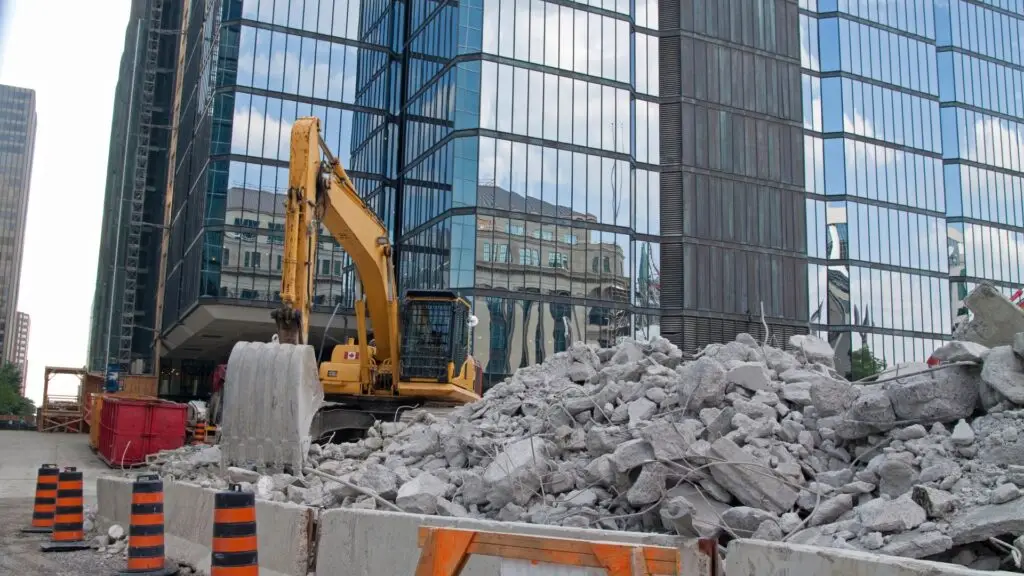
Key Factors That Affect Demolition Costs
The cost of demolition in New Zealand isn’t one-size-fits-all. Several factors directly affect the final price you’ll pay. Whether you’re demolishing a small shed or a large commercial structure, understanding what drives the cost helps you plan better and avoid surprises. Below is a detailed breakdown of each major cost factor.
Size Of The Structure
The larger the structure, the more it will cost to demolish. That’s because more materials need to be broken down, removed, and hauled away. A 100-square-meter home will be far cheaper to demolish than a 250-square-meter commercial building. Labour hours, machinery requirements, and waste volume all increase with size. Contractors typically charge per square meter, so your total floor area directly impacts the price.
Material Type
What your building is made of plays a big role in demolition pricing. Timber-framed homes are faster and easier to dismantle, which usually makes them more affordable. On the other hand, buildings made from brick or concrete require heavy-duty machinery and more labour, driving up the cost. If your structure contains asbestos, a hazardous material often found in older homes, the cost will spike due to strict removal protocols and disposal laws.
Site Accessibility
Easy access to the site can lower your costs. If large equipment and trucks can reach the structure directly, the job becomes more efficient. But if your property has tight driveways, steep slopes, or is located in a confined urban space, the contractor may need extra tools, manual labour, or even cranes. These challenges increase both time and expenses.
Location
Your location affects labour rates, council fees, and even waste disposal costs. Demolitions in major cities like Auckland or Wellington tend to cost more due to higher overheads and permit fees. In contrast, rural areas may offer cheaper labour but could incur higher transport costs if waste facilities are far away. Regional price differences can also depend on local demand and the availability of contractors.
Waste Removal
One of the biggest hidden costs in demolition is getting rid of the debris. Contractors must transport waste to approved facilities, which charge tipping or dumping fees. If materials can’t be recycled, those fees are often higher. Concrete, bricks, wood, insulation, and metals must be sorted and managed separately, especially when strict environmental rules apply. These extra steps can quickly add to your overall bill.
Hazardous Materials
If your building contains hazardous materials like asbestos, lead paint, or mould, removal becomes more complex and regulated. A professional inspection is required, and removal must be handled by licensed specialists. In New Zealand, asbestos removal can add thousands to your demolition cost due to safety, disposal, and legal compliance.
Permit Requirements
Most demolitions in New Zealand require a building consent from the local council. The cost of this permit varies by region and depends on the size and nature of the structure. Some councils may also charge development fees or require site-specific reports, especially in heritage areas. Delays in permit approvals can also affect your project timeline and budget.
Timeframe
If you need the demolition done urgently, expect to pay a premium. Contractors may need to reschedule other jobs, bring in more crew, or work extended hours to meet your deadline. Fast-tracking the process can be helpful if you’re on a tight schedule, but it comes at a higher cost compared to a standard project timeline.
Understanding these factors helps you prepare for the real cost of demolition and avoid lowball estimates that skip the fine print. Always ask for a detailed quote and clarify what’s included to avoid hidden charges.
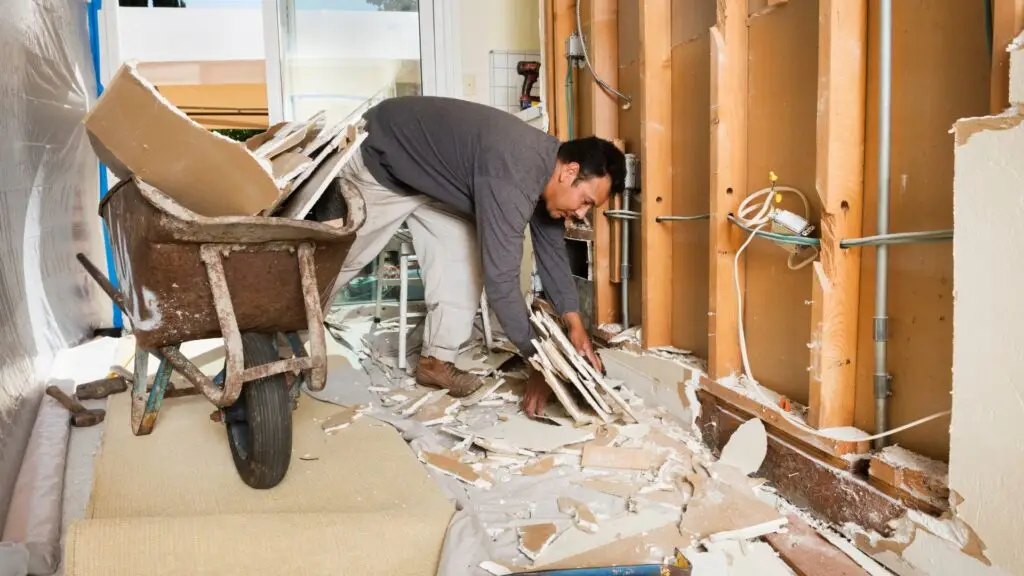
Demolition Cost Examples By Type
Demolition costs in New Zealand can vary a lot depending on the type of structure being removed. To help you get a clearer idea, here are specific examples based on common demolition projects. These are realistic, experience-based estimates gathered from contractors across different NZ regions. Keep in mind that actual costs may vary depending on the size of the project, location, materials, and site access.
Old 3-Bedroom House In Auckland – $25,000 Average
Tearing down a typical 3-bedroom weatherboard home in Auckland usually costs around $25,000. This includes full structure removal, waste disposal, and site clean-up. Factors that influence this price include:
- Square meter size (usually between 90–130m²)
- Asbestos checks (often found in older homes)
- Location challenges like narrow driveways or steep sections
If the house contains asbestos or has difficult site access, costs can climb to $30,000 or more. On the other hand, a small single-level home with easy access and no hazardous materials may cost closer to $20,000.
Garage Or Shed Removal – $5,000–$10,000
Removing a standalone garage or shed is one of the more affordable demolition jobs. You can expect to pay between $5,000 and $10,000, depending on:
- Size and materials (timber is easier and cheaper to remove than concrete block)
- Whether the slab needs to be removed
- Waste disposal and tipping fees
If you’re removing an attached garage, the cost could increase slightly due to the need to protect or repair connecting structures.
Interior Strip-Out For Renovation – $3,000–$8,000
Interior demolitions are popular for homeowners doing renovations. These jobs involve removing internal walls, fixtures, kitchens, bathrooms, and sometimes flooring. The typical cost ranges from $3,000 to $8,000, and depends on:
- The number of rooms being stripped
- Waste volume and transport
- Whether structural elements are involved (which require more care and engineering input)
A simple kitchen or bathroom strip-out may cost closer to $3,000, while a full internal gutting of a large home could exceed $8,000.
Commercial Site Demo (Warehouse) – $50,000+
Demolishing a commercial warehouse or industrial site comes with a higher price tag, usually starting at $50,000 and going much higher depending on scale. This includes:
- Large concrete slab removal
- Steel framing and roofing disposal
- Permits and safety compliance
- Asbestos testing (common in old commercial buildings)
- Heavy machinery and longer timeframes
For example, a mid-sized warehouse (500m²) in Hamilton or Wellington may cost $60,000–$80,000, especially if materials need to be separated and recycled under council regulations.
These real-world examples offer a practical reference point for budgeting your project. Always request itemized quotes and site inspections before committing, as costs can vary based on conditions unique to your property.
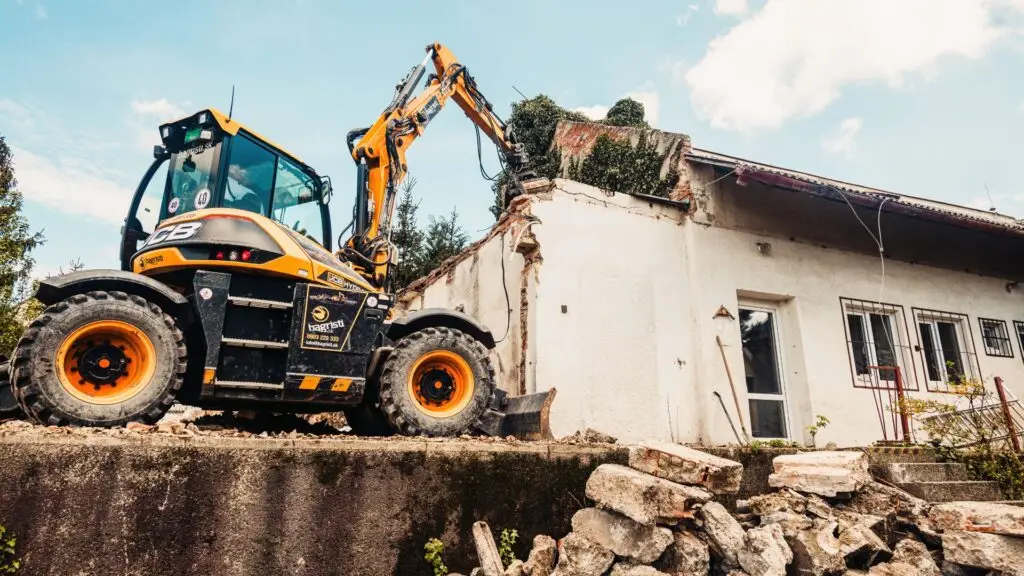
How To Get An Accurate Demolition Quote
If you’re planning a demolition project, getting an accurate quote is a critical step. It’s not just about finding the cheapest option, it’s about understanding exactly what you’re paying for and making sure there are no surprises later on. A vague or incomplete quote could lead to unexpected costs down the road, delays, or even legal issues. Here’s how you can make sure the quote you receive is clear, detailed, and fair.
What To Ask When Contacting A Contractor
When you first reach out to a demolition company, don’t just ask, “How much will it cost?” That question is too broad. Instead, ask specific questions to help the contractor give you a realistic price. Here are key questions you should bring up:
- What’s included in the quote? (e.g., permits, waste disposal, site cleanup)
- Are there any extra charges I should expect?
- Will you handle asbestos testing and removal if needed?
- How long will the demolition take?
- Do you include salvage or recycling in your process?
- What safety measures do you follow on-site?
- Can you provide references or show past projects?
These questions will not only help you get a complete picture of the cost but will also give you insight into how professional and transparent the contractor is.
Why Site Visits Matter
No reputable contractor will give you a final quote without inspecting the site first. A proper site visit allows them to check:
- The size and type of structure
- Access to the site (narrow streets, limited entry points, etc.)
- Presence of hazardous materials
- Nearby buildings, trees, or infrastructure that need protection
- Ground conditions that may affect equipment use
Skipping this step often leads to under- or over-quoting. If a contractor gives you a final price without seeing your site, that’s a red flag. A proper inspection ensures the quote reflects the actual scope of work, not a generic estimate.
What To Prepare Before Getting A Quote
Before the contractor arrives, have these items ready. This helps speed up the process and ensures you get the most accurate estimate.
Demolition Quote Prep Checklist
- Address of the property
- Type of demolition needed (full, partial, interior strip-out)
- Size of the structure (in square meters)
- Building materials used (e.g., timber, concrete, brick)
- Age of the property (older homes may have asbestos)
- Access details (driveway width, nearby buildings)
- Any structures to remain untouched
- Preferred timeline for the project
- Any photos or building plans (if available)
You can create your checklist in a simple Word or Google Doc, or turn it into a printable PDF for easy reference. Providing this info upfront helps the contractor prepare, reduces back-and-forth, and leads to a faster, more accurate quote.
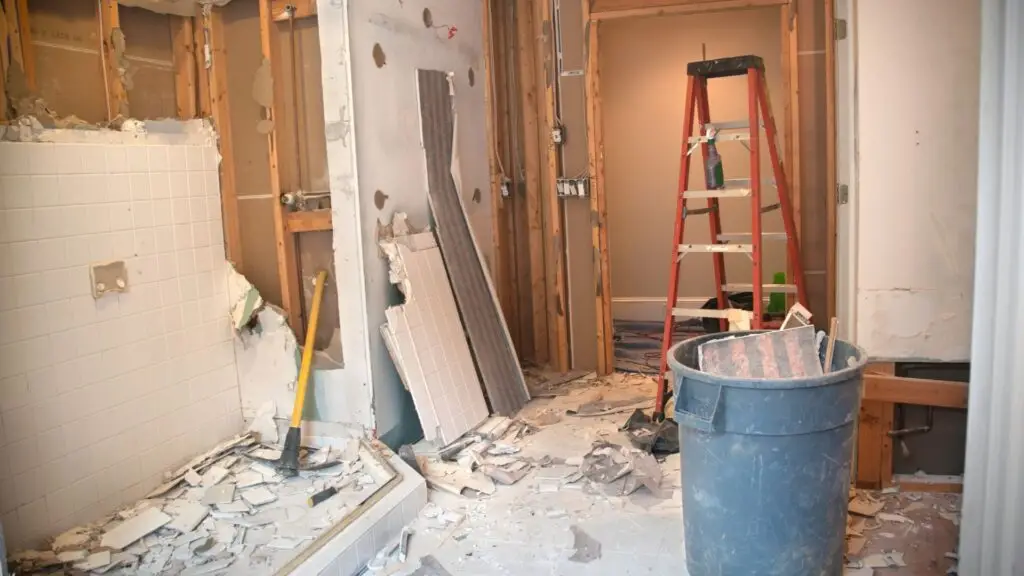
How To Save Money On Demolition
Demolition doesn’t have to break your budget. With the right planning and decisions, you can cut costs without cutting corners. Here are four smart ways to save money when hiring demolition services in New Zealand.
Salvage And Sell Reusable Materials
Before tearing everything down, look at what can be salvaged. Many homes have materials that can be reused or sold. Common examples include:
- Timber and framing
- Roofing iron
- Bricks and pavers
- Kitchen cabinetry
- Fixtures like taps, sinks, and light fittings
Some demolition contractors offer deconstruction services, which means they carefully remove and sort materials before full demolition begins. You can then sell those items through second-hand dealers, builders’ marketplaces, or even community Facebook groups.
By salvaging what you can, you reduce landfill waste and earn money back. It’s also a more sustainable approach, which many homeowners now prefer.
Combine Demolition With Construction
If you already have a construction or renovation project lined up, bundling it with your demolition can save time and money. Some companies offer both services, and working with one provider means:
- Fewer setup costs
- Streamlined planning and permits
- Reduced project delays between demo and build
It also makes communication easier, especially if the builder is already familiar with the demolition site. This can prevent rework or issues later.
When you combine both phases, you create a more efficient timeline, which often results in lower costs overall.
Choose Local Contractors To Avoid Travel Fees
Hiring a demolition crew based outside your region may cost you more. Many companies charge travel fees, especially if they need to bring heavy equipment over long distances.
To avoid that, get quotes from local contractors. Local teams often:
- Know the area’s regulations and consent requirements
- Have shorter response times
- Avoid overnight or freight charges
Plus, they may have better relationships with local waste disposal facilities, which can help reduce tipping or recycling costs.
Plan During Off-Peak Times
Timing matters more than most people think. Like many industries, demolition has peak and off-peak seasons. Booking during a slower period can lead to:
- Faster job turnaround
- Better contractor availability
- More flexible pricing
Off-peak times in NZ typically fall outside of summer or major construction booms. If your project isn’t urgent, ask contractors when their quieter seasons are. Planning lets you lock in better rates and avoid premium charges.
Each of these steps adds up. Salvage what you can, time your project well, work with locals, and look for service bundles. The result? A smoother demolition process and more money left in your pocket.
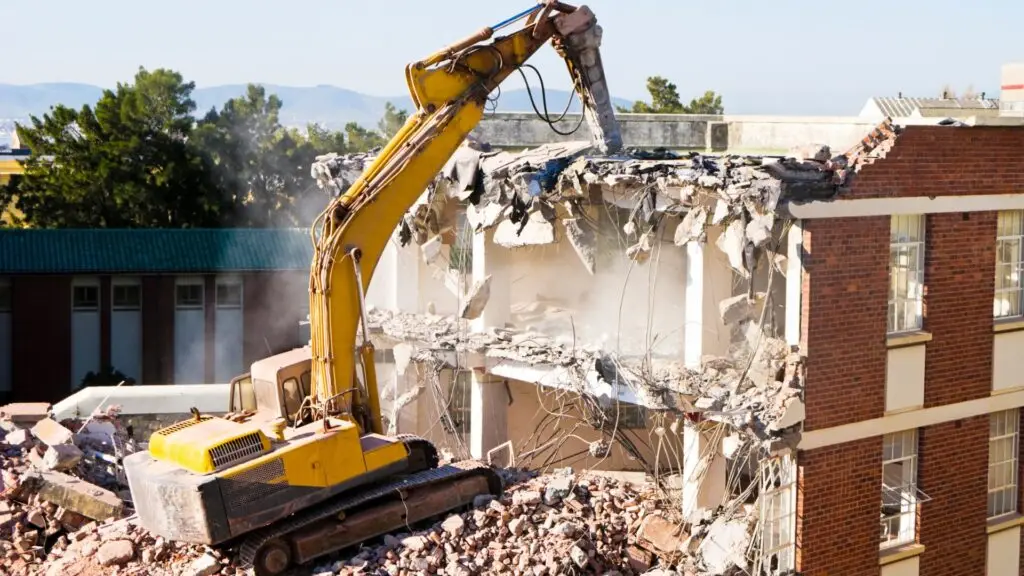
Do You Need Council Approval Or Permits?
If you’re planning a demolition project in New Zealand, one of the first things you need to check is whether council approval or a permit is required. Many people assume they can start knocking down a structure right away, but that’s rarely the case. Building consents exist to make sure that demolition is done safely, legally, and with proper consideration for environmental and structural concerns.
What Is A Building Consent?
A building consent is official approval from your local council that confirms your demolition work complies with the New Zealand Building Code. It’s not just a formality, it ensures the work will meet safety standards and protect people, property, and public infrastructure.
Demolishing without the proper consent can lead to serious consequences. These include fines, delays, and legal issues that can affect your future construction plans. So even if your job seems small, it’s worth taking the time to check first.
When You Need A Building Consent
You will likely need a building consent if you are:
- Demolishing a residential or commercial building in full or in part
- Removing a structure that affects structural integrity, like load-bearing walls
- Working near utilities, public roads, or shared boundaries
- Planning to replace or rebuild after demolition
- Removing structures that require asbestos handling
If you’re unsure, it’s safest to assume that consent is required. You can always confirm this with your local council before starting the job.
When You Might Not Need One
There are a few exceptions where a building consent may not be necessary. You might not need approval if you’re:
- Taking down non-structural items like interior partitions
- Demolishing a small detached structure like a garden shed (usually under 10 square meters)
- Performing minor work that doesn’t affect structural or weatherproofing systems
Even in these cases, you should still check with your local council. Rules can vary depending on your location and the specific nature of the work.
Where To Find Official Guidance
Each council in New Zealand has its own set of rules and requirements. To avoid mistakes, visit the official Building Performance website by the Ministry of Business, Innovation and Employment (MBIE): https://www.building.govt.nz
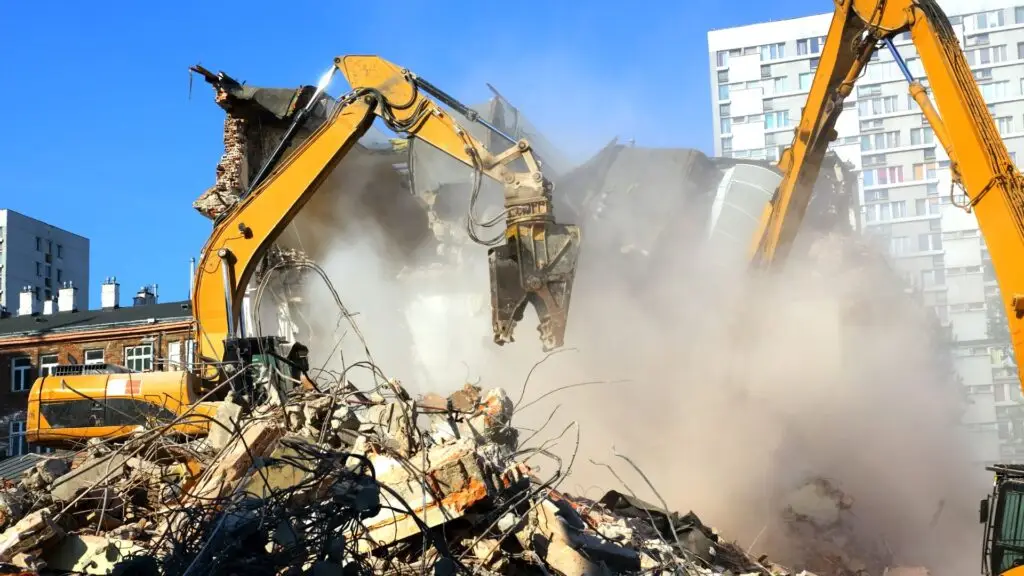
Choosing The Right Demolition Contractor
Choosing the right demolition contractor in New Zealand can make or break your project, both in terms of cost and safety. It’s not just about who offers the lowest quote. You need a team that understands local laws, follows strict safety practices, and has a proven track record. Here’s what to look for:
Experience With Local Laws And Safety
Demolition isn’t a one-size-fits-all job. Every region in NZ has its own council rules, permit requirements, and safety standards. A good contractor will know exactly what’s required in your area and help you navigate the paperwork. They’ll also make sure your site complies with WorkSafe New Zealand’s safety codes. This protects not only their crew but also you, your neighbors, and your property.
For example, if asbestos is present, only licensed professionals are legally allowed to remove it. An experienced contractor will spot these risks early and manage them properly, saving you from fines or delays down the line.
Clear Quoting Process
Avoid contractors who give vague estimates or leave out key details. A professional demolition company will provide a written quote that breaks down:
- Labour costs
- Equipment use
- Waste removal and tipping fees
- Permit or consent handling
- Any extra charges (e.g., asbestos removal or difficult site access)
This kind of transparency helps you avoid surprise costs later. It also shows that the contractor is serious about doing the job right.
Health And Safety Certifications
Before hiring anyone, ask for proof of their health and safety credentials. Do they follow WorkSafe NZ standards? Are they trained in handling hazardous materials? Are their workers certified to operate heavy equipment?
A reliable contractor will have the following:
- Site Safe certification
- Licenses for asbestos work (if needed)
- First-aid trained personnel
- Safety management plans for your specific site
This protects everyone involved and ensures your project stays on track.
Online Reviews And Past Work
Don’t just take a contractor’s word for it, look at what past clients have said. Check Google reviews, Trade Me, or local forums. Consistent complaints are a red flag, while positive reviews about professionalism, timeliness, and clean-up are good signs.
Also, ask to see examples of previous demolition jobs. A quality contractor will gladly share photos or references so you can judge their work firsthand. This gives you confidence that they can handle your project safely and efficiently.
Hiring the right demolition contractor isn’t just about getting the job done, it’s about doing it legally, safely, and with no unwanted surprises. Take the time to compare a few companies, ask the right questions, and always choose the team that offers experience, clarity, and trust
Looking for a reliable team to handle your demolition project? Get in touch with us today to request a quote or learn more about our demolition services across New Zealand.
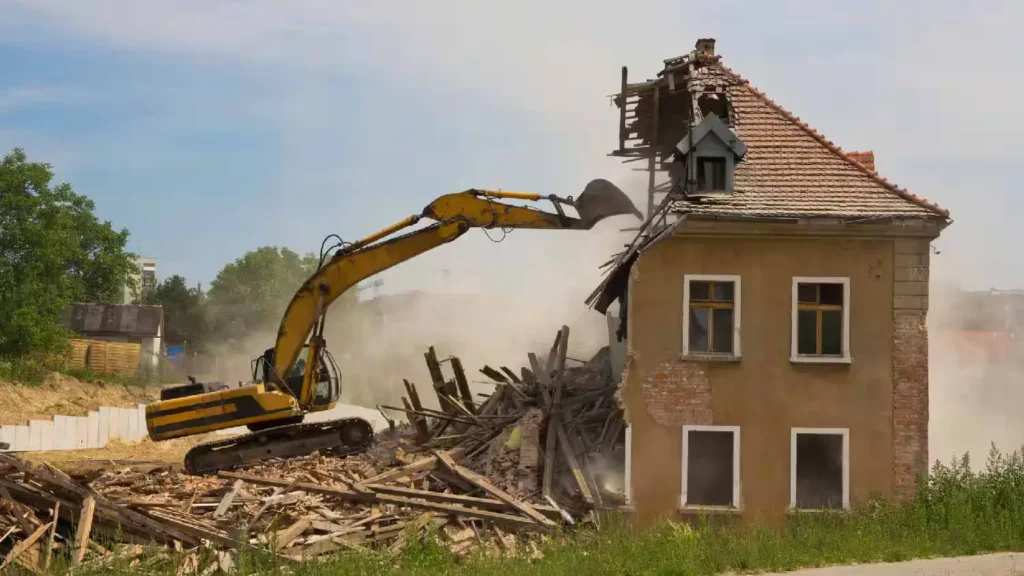
FAQs: About Cost For Demolition Services In NZ
How much does it cost to demolish a house in New Zealand?
The average cost to demolish a house in NZ ranges from $15,000 to $40,000, depending on size, materials, site access, location, and waste removal requirements.
What factors affect demolition pricing the most?
The key cost drivers include the size of the structure, building materials, presence of asbestos, site accessibility, location, required permits, and how much waste needs to be removed.
Is asbestos removal included in demolition costs?
No, asbestos removal is usually charged separately. If your building has asbestos, you’ll need a licensed specialist to test and remove it, which can significantly increase the overall cost.
Do I need a permit to demolish a house in NZ?
Yes, most full demolitions require building consent from your local council. Interior strip-outs or minor demolitions may not need one, but it’s best to check with your council first.
How long does a typical demolition take?
For a standard residential house, demolition usually takes 3–7 days. Larger or more complex projects may take several weeks, especially if there’s asbestos or limited site access.
Can I save money by salvaging materials?
Yes, materials like timber, bricks, and metal can often be sold or reused. Some contractors will offset these salvageable materials against your total demolition cost.
Are demolition quotes free in NZ?
Most contractors offer free quotes after a site visit. It’s recommended to get at least 2–3 quotes to compare prices and services before making a decision.
What’s the cost to demolish a garage or shed?
Garage or shed demolition in NZ typically costs between $5,000 and $10,000, depending on size, material, and disposal requirements.
Is it cheaper to do partial demolition?
Yes, partial demolition—like removing one wall or a section of the building—is generally more affordable than full demolition. Costs vary based on complexity.
Can I live on-site during demolition?
It’s not recommended. Demolition is noisy, dusty, and potentially unsafe. Most contractors will require the site to be vacated during the process for safety reasons.
Conclusion
Demolition costs in New Zealand can vary a lot depending on your location, the type of structure, and what’s involved in the job, but with careful planning, you can avoid surprises and keep things within budget. Whether you’re removing a small shed or demolishing a full house, taking the time to understand the factors that influence pricing will help you make informed decisions. Always get a few detailed quotes from trusted local contractors so you can compare services, ask the right questions, and avoid hidden fees. If you’re planning a project and want a clearer idea of what it might cost, feel free to reach out—we’d love to hear about your plans and help you get started.
